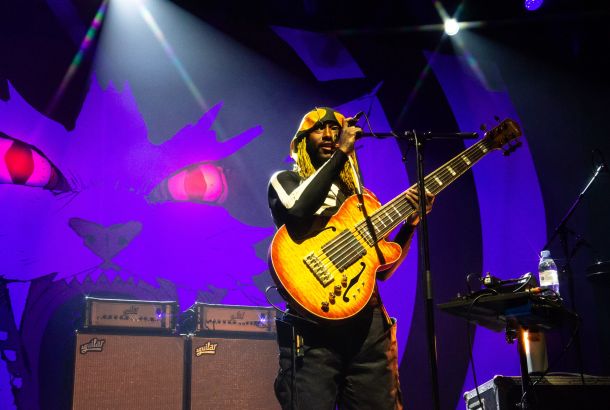It began with avant-garde composers who started working with magnetic tapes to record and manipulate sound in the 1950s. With notable exceptions, such as some of the Beatles’ psychedelic work, it wasn’t until the 80s that sampling became part of the popular musical vocabulary. Following on from underground DJs in Harlem and the Bronx in the 70s, rappers began to record their rhymes over DJs creating break beats from RnB, funk and blues loops. Today, sampling is everywhere. The vast majority of modern songs you hear contain samples. Nearly all pop and hip-hop relies on them, as do most dance producers.
Sampling is obviously very different to playing an instrument and it challenges the core ideas of creativity. It’s not easy either – those who think anyone can make a song from samples should think again. Look at it as the musical equivalent of collage. It’s a hard and incredibly time-consuming process to find multiple pieces of music that work together. If there’s one album that shows the pure virtuosic nature of this sort of music, it’s DJ Shadow’s seminal 1996 album Endtroducing.
That album is one of instrumental hip-hop’s (AKA Trip-Hop) landmark pieces. Even with a strangely eclectic mix of hip-hop, jazz, metal, lounge, and classical music, it might not make a huge impression on first listen. Listen again, but keep in mind that none of this album has been recorded. Every drum fill, every bass line, voice over or organ riff has been delicately lifted from tracks by other musicians and pieced together to create totally new and wildly different songs. There’s a good reason why the album cover shows people browsing vinyl in a record store: DJ Shadow must’ve spent so much time in places like that looking for that perfect sample. And it was worth it.
Whilst DJ Shadow is seen as one of the sampling scene’s greatest pioneers, few can doubt the dominating influence of Daft Punk in taking sampling forward and onto the dance floor. Their 2001 album, Discovery, is also comprised entirely of samples. Not that it really matters, because whenever those songs come on everyone is too busy dancing to care. Classics like ‘Da Funk’, ‘One More Time’ and ‘Harder, Better, Faster, Stronger’ are all just combinations of older tracks sliced up and rearranged to create some of the 90s’ most memorable and upbeat tunes.
Sampling works best when it draws from little known sources and puts a new and interesting spin on them. When it draws upon a well-known song, the effect tends to be underwhelming. Puff Daddy notoriously shelled out vast amounts of money through the 90s to pay for famous tunes and hooks to make his rap songs into pop hits. Yes, it has made him the richest man in hip-hop, but musically he will never be remembered like rap titan Notorious B.I.G. (who P.D. actually made his first mountain of cash from signing in 1993). In Diddy’s defence, Andy Warhol did a similar thing throughout the 60s. He barely lifted a finger, simply having workers make stylised copies of images and making millions of dollars for himself. He’s respected as one of the 20th century’s greatest visual artists, so maybe Diddy deserves some merit.
At least P Diddy gave credit and money to the artists he sampled. Will.I.Am, in contrast, has spent the last decade sampling and outright taking tracks without permission or paying royalties to the original artists. Yet, it would be unfair to blame his actions on sampling. There are plenty of musicians in all areas of music all too keen to take the praise for someone else’s hard work. Queen’s famous bass line to ‘Another One Bites the Dust’ is clearly (and to be fair, openly acknowledged) from Chic’s ‘Good Times’, which you’ll probably know better as the bass line to The Sugar Hill Gang’s ‘Rapper’s Delight’.
Some people prefer ‘original’ music created completely from scratch. That’s fine, but there’s no need to pretend that music has ever truly been about originality. All music recycles old music – every musician has their influences and a combination of sounds that they make their own. But there’s no need to hide those by recording and subtly changing them so they’re somehow your ideas. When you find a funky bass line and think it works well with a majestic, slow choral piece, there’s no need to re-record them both. Why go through all that time, energy and cost when sampling and putting them together creates the song you want to hear and share? It’s a no brainer. And yet there’s still more to it than just a shortcut to making music. Sampling directly celebrates musical heritage. It may scream out a lack of originality, but that has always been a fundamental and essential part of what music is.







